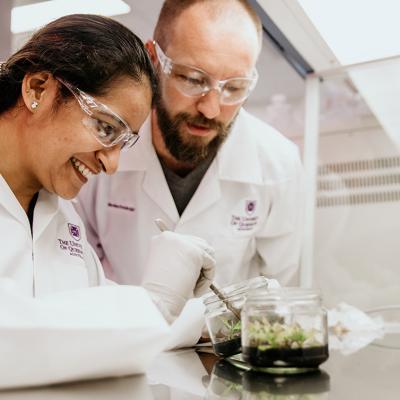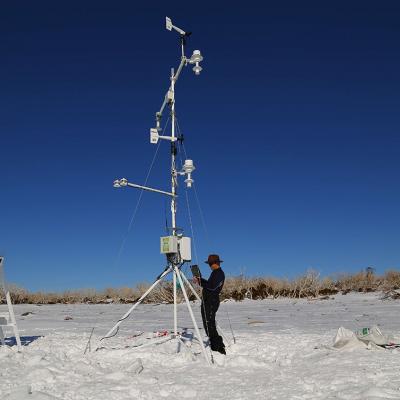Where could a molecular biology degree take you? From fieldwork to laboratory research, discover the wide variety of molecular biology career paths you could follow.
Molecular biology is a field of science that explores and closely studies the structures and functions of cells that are essential to life, on a molecular level. It’s an intriguing and complex field that isn’t completely understood yet – providing plenty of opportunities for people with a scientifically curious mind to investigate, understand and teach the concepts behind how cells function and make life possible.
Study molecular biology; become a molecular biologist, right? Not always - there are several avenues you can take in this field. Graduates with a molecular biology degree often find work in medical testing laboratories or with biotechnology companies conducting research or investigations with advanced technologies, or with universities in a teaching role. Alternatively, many graduates use these programs as a stepping stone to a PhD or for entry into graduate medical courses.
But there are many other opportunities available to you as a graduate in this field, depending on which molecular biology career path you wish to take.
To give you an idea of the molecular biology careers available, we’ve outlined some of the paths you can take after graduating. So, if you’re interested in becoming an expert in one of the most intriguing and rewarding fields – and you’d like to dedicate yourself to a field where your efforts will help keep the environment sustainable and the lives of those within it healthy – keep reading.
Environmental biologist
This field is similar to ecology – both involve the study of ecosystems. However, environmental biology focuses on the biological aspect of these systems as a whole, rather than specific species. Environmental biology will see you out in the field, focusing on the impacts of human activities on these ecosystems and the species living in them.
As an environmental biologist, your efforts will help protect ecosystems from the adverse effects of damaging human activities, making it one of the most rewarding biology careers out there.
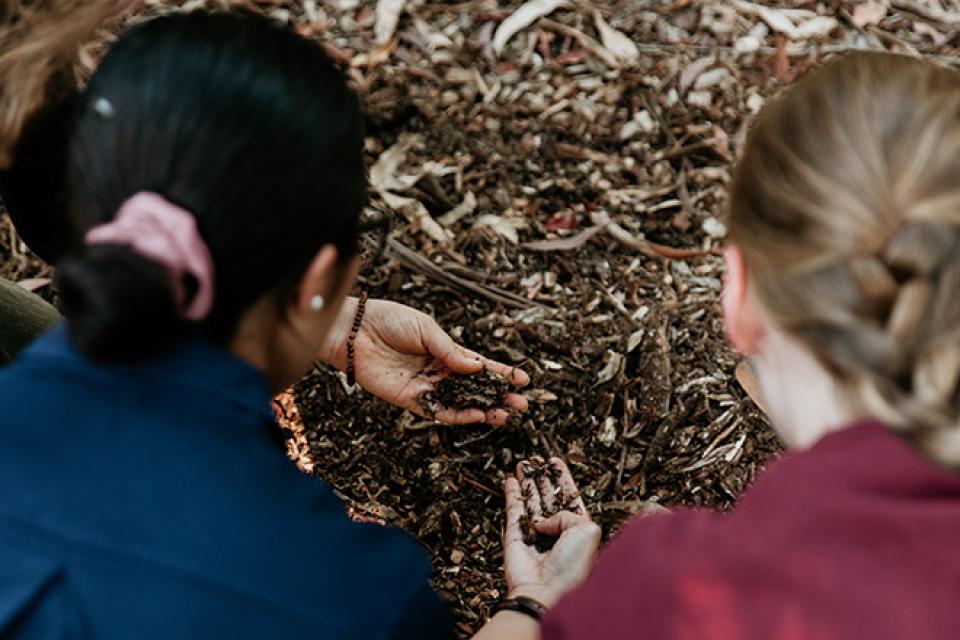
In this role, you can expect to:
- plan, investigate and report on the impacts of actions, pollutants and conditions on wild communities
- monitor environmental conditions of a variety of ecosystems and conduct environmental impact assessments for development projects
- maintain environmental monitoring systems
- collect water and soil samples from the field for further analysis and investigation.
Your work environment: environmental biologists often work for state or federal government agencies, but they can also find themselves in offices and laboratories or at universities in academic and/or teaching roles.
Biotechnology researcher
With a molecular biology degree, such as a Master of Molecular Biology, jobs can come in the form of research positions. You may find roles as a researcher within biotechnology companies, where you’ll help create and improve products and processes for agriculture, medicine and conservation using biological organisms.
You’ll work in laboratories with access to highly complex and state-of-the-art technologies for carrying out biological processes. You’ll be working in an innovative industry at the forefront of the future of technology, providing solutions to some of the world’s most pressing issues such as disease treatment, climate change, fuel alternatives, and food security. When it comes to biology occupations, it doesn't get much more exciting than being a biotechnology researcher.
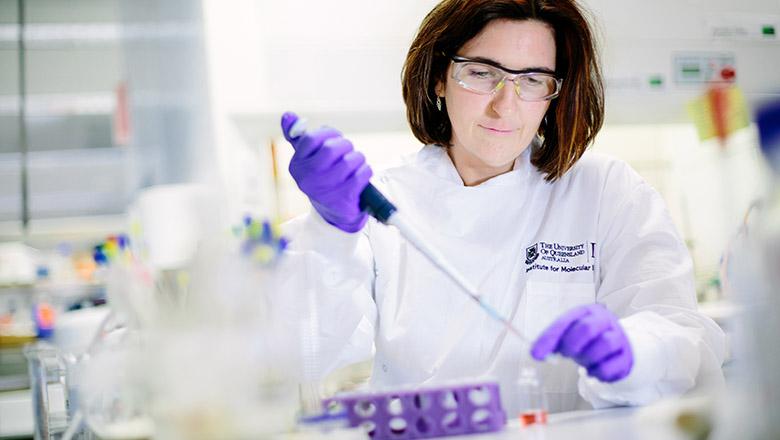
In this molecular biology career, you might get to:
- develop new pharmaceuticals and vaccines
- perform cross-breeding of plants and animals to increase dominant characteristics
- design bionic body parts and organs
- manufacture healthy and sustainable alternatives to food and drink items.
Your work environment: biotechnology researchers often work in laboratories or offices within universities, research institutes or processing and manufacturing plants.
Microbiologist
Microbiologists study microscopic forms of life such as bacteria, viruses, algae, fungi, and some types of parasites. In this field, you’ll investigate the chemical structure and function of living cells, organs and tissues in humans, animals, plants, and micro-organisms.
Using knowledge gained through close examination of micro-organisms, you’ll create and develop new products, materials and processes – as well as improving existing ones.
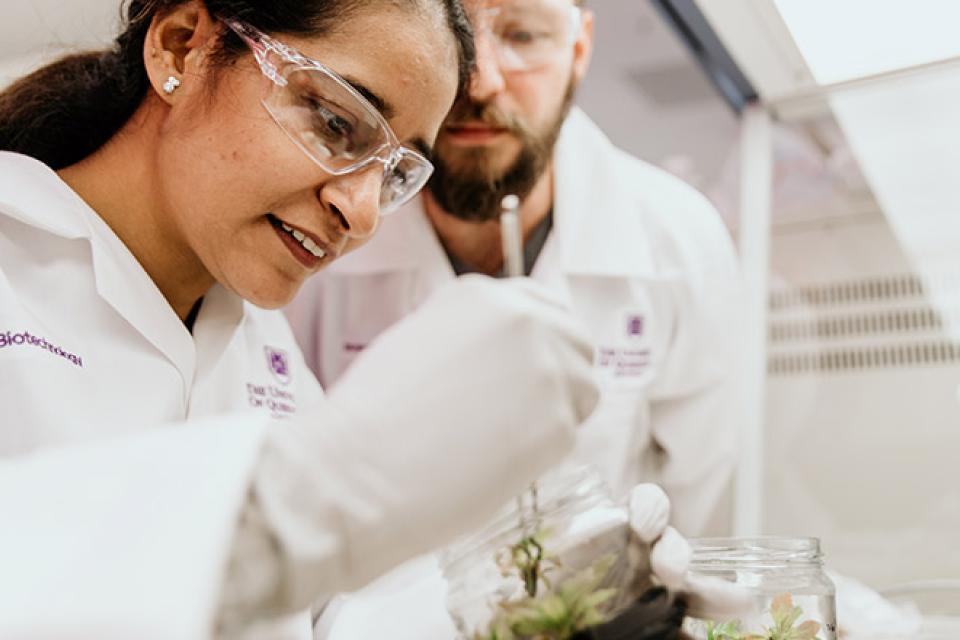
Jobs in this molecular biology career typically include:
- planning and completing complex research projects, such as improving sterilisation procedures or developing new drugs to combat infectious diseases
- conducting experiments in the laboratory that will be used in the diagnosis and treatment of illnesses
- monitoring the effects of micro-organisms on plants, animals, other micro-organisms, or the environment as a whole
- preparing and publishing technical reports and research papers, and making recommendations to scientists, executives, engineers and the public based on your research findings.
Virologist
As a virologist, you’ll study the growth, development, structure and characteristics of different viruses. You’ll closely monitor and study all kinds of viruses that affect humans, animals, insects, bacteria, fungi and plants, and you’ll do this in community, agricultural and natural environments.
Virologists often juggle time between working in laboratories and providing expert advice to people across many different areas of human and animal health service sectors.
In this role, you can expect to:
- diagnose viral infections and investigate the pharmacological response of viruses to antiviral drugs and the evolution of drug resistance
- give expert advice to hospital wards, veterinarians and government
- advise GPs on how antiviral drugs should be prescribed and used appropriately and safely
- advise on public health matters, including immunisation and vaccine use.
Your work environment: virologists typically work in research or teaching roles within universities, but they can also find roles as science writers or, with additional training, work in pharmaceutical business or law.
Research
As there are still so many unknowns when it comes to molecular biology, there’s never a bad time for anyone with a curious mind and a passion for the biosciences to become an expert researcher in this field.
UQ’s leading molecular biology and bioscience experts are constantly contributing valuable research to these fields, with results and recommendations that make a genuine difference. Here are just a few examples of their recent research:
- a needle-free patch to offer protection against Zika virus
- a high-tech spray to prevent and cure infection caused by an invasive fungal disease devastating native Australian plants
- utilising machine learning to help predict the risk of secondary bacterial infection in hospitalised COVID-19 patients.
Study molecular biology at UQ
If you have an investigative, curious and science-oriented mind, with an interest in looking deeper into biological processes on a molecular level, a molecular biology career could be perfect for you.
Check out the programs available at UQ:
- Bachelor of Science (Major Biochemistry and Molecular Biology)
- Bachelor of Advanced Science (Honours) (Biochemistry and Molecular Biology major)
- Master of Molecular Biology
- Master of Molecular Biology (Research Extensive)
- Graduate Certificate in Molecular Biology
- Graduate Diploma in Molecular Biology
Want to know more about the types of careers you can pursue with a university degree in science?



